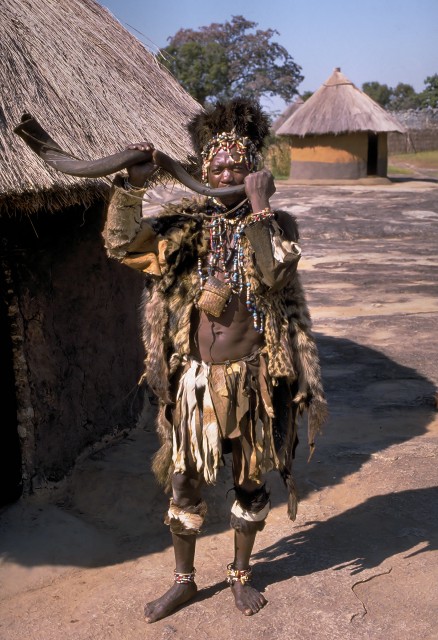Shona
The Shona are a cluster of peoples who have lived for about 2,000 years in the Zimbabwean Plateau, a region of southern Africa that includes most of ZIMBABWE and part of MOZAMBIQUE. The Shona divide themselves into clans that are associated with particular chiefdoms and areas. Although most Shona identify with a clan rather than with the Shona group as a whole, most Shona communities contain a mixture of clans.
Over the centuries a number of Shona states have developed. The Shona kingdom of ancient Zimbabwe flourished in the 1300s and 1400s and was part of a gold trade network that extended as far as China. At the heart of the kingdom, the Shona built the impressive stone city of Great Zimbabwe—its ruins are now a major tourist attraction. After Zimbabwe lost power, the Shona formed smaller kingdoms, including Monomatapa and Rozvi Mambo. In the 1800s neighboring peoples weakened Shona authority in the region. By the time the British and Portuguese colonized Shona territory in the late 1800s, the Shona had divided into many small, independent chiefdoms.

In the past the Shona farmed and herded livestock. Today most of them combine farming with work in the cities, maintaining strong links between town and country. The Shona are known internationally for two art forms: stone sculpture and the music of the mbira, an instrument made of a hollow gourd with metal reeds that the player plucks. Although many Shona practice Christianity, they often turn to traditional religions to solve personal problems, such as illness, and to improve the fertility of the land.